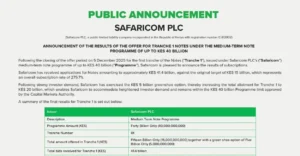As a freelancer, you’re used to the flexibility that comes with setting your own schedule and choosing the projects that excite you. However, when it comes to retirement planning, the lack of a steady paycheck can make things seem a little more complicated. Unlike salaried employees who have pensions and employer contributions to rely on, freelancers must take the reins when it comes to building a secure future.
The good news is, with the right financial planning, you can ensure a comfortable retirement – no matter how erratic your income might be. Here are a few tips to help you manage your finances and create room for retirement planning, even with an unpredictable income.
1. Track Your Income and Expenses
The first step in managing erratic freelance income is to get organized. Keep track of all your earnings and expenses so you can understand your financial flow. By reviewing your income over a period of time, you’ll be able to identify trends and anticipate which months will be leaner than others. This will help you plan your savings accordingly and ensure you’re always putting money aside for your future.

Also read: How to grow and protect your wealth for a happy retirement
2. Create a Budget with Flexibility
Creating a budget is essential for every freelancer. But because your income varies, you’ll need a flexible budget that allows for adjustments each month. For months when you earn more, set aside a larger portion for savings. During slower periods, reduce your savings contribution but still make sure to contribute something—no matter how small. Having a baseline budget will help you stay disciplined without feeling restricted.
3. Save Consistently, Even in Lean Months
It’s easy to get distracted when the money is flowing, and harder to save when business slows down. However, consistent saving is key to retirement planning. Try to set up automatic transfers into a separate retirement savings account, so you’re automatically saving every month, even if the amount fluctuates. The important thing is to make it a habit and stick to it, even when funds are low.

4. Plan for Big Financial Goals, Not Just Retirement
As a freelancer, you’ll often have other financial goals—like buying a home or paying for education—on your plate. Be sure to factor these goals into your long-term financial plan. When you’re allocating funds, make sure retirement is a priority, but also be mindful of your other financial needs. Planning for multiple goals means you’re less likely to neglect your future, even when life gets busy.
5. Open a Dedicated Retirement Account
Unlike employees who have employer-sponsored pension plans, freelancers must create their own retirement savings plan.
Look for an individual pension plan that’s specifically designed for self-employed individuals. With a dedicated account, you can keep track of your retirement savings separately from your day-to-day finances. NCBA, for instance, offers a range of tailored financial products that allow you to easily manage your savings and grow your wealth.

6. Diversify Your Investments
While saving is important, growing your wealth is equally essential. Since freelancers don’t have the same guaranteed benefits as salaried employees, it’s a good idea to diversify your investment strategy. You can explore low-risk options like money market funds, or consider more growth-oriented opportunities like stocks or bonds. Diversification spreads the risk and allows your money to grow steadily over time, putting you in a strong position for retirement.
7. Work with a Financial Advisor
Managing irregular income can be tricky, but a professional financial advisor can help. A good advisor can guide you on how to structure your savings, invest wisely, and set realistic retirement goals based on your unique situation. They can also help you maximize tax benefits, especially since freelancers have more control over their income and deductions.

8. Set Clear Retirement Goals
It’s important to define your retirement goals. Ask yourself: When do I want to retire? How much money will I need to live comfortably? By setting clear targets, you’ll be able to structure your savings plan more effectively. Knowing the “why” behind your savings makes it easier to stick with the “how.”
By tracking your income, saving consistently, and working with the right financial partner, like NCBA, you’ll be in a strong position to enjoy your retirement without worrying about where the money will come from.





